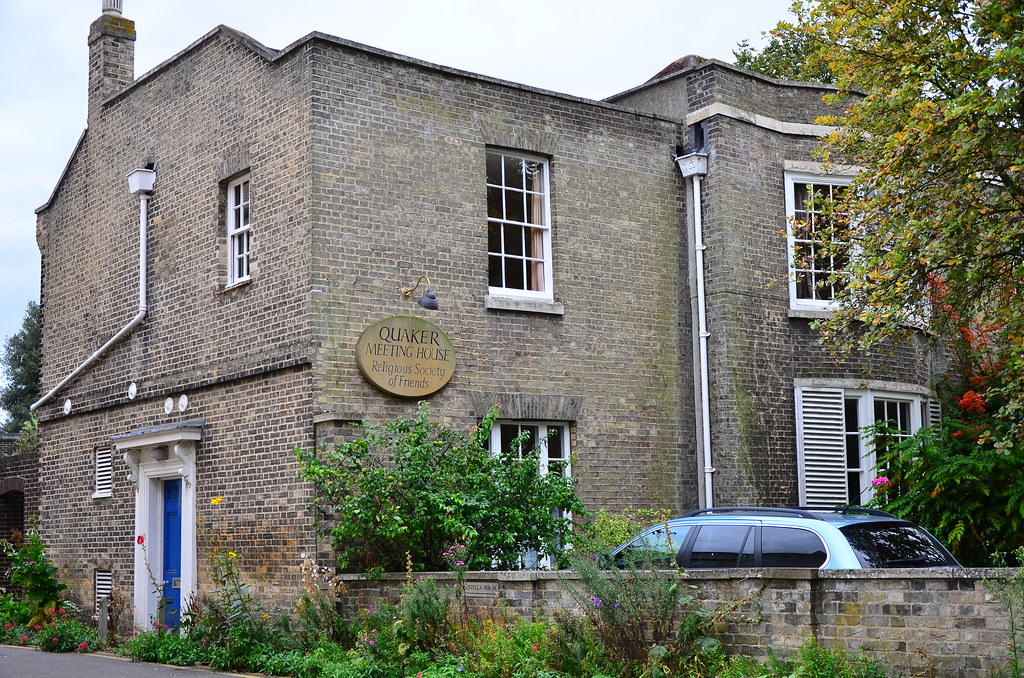This is part of the Quaker Alphabet Project – click here for more information.
P is for Premises
14.25
Meeting houses
Care of premises
A meeting house should not be regarded primarily in terms of bricks and mortar, or merely seen in relation to potential site value. Its real value derives from the worship and service of the meeting. Even so, our meeting houses no less than our own homes deserve our care, attention and imaginative thought, so that they may be attractive both to ourselves and to others whilst remaining faithful to our commitment to simplicity, care of the environment and equality. Care of our premises is an important and sometimes exacting responsibility, which should be exercised by or on behalf of the meeting to which it belongs. Area meeting trustees and local premises committees should be vigilant so that small defects do not pass unnoticed and lead in the future to extensive and costly repairs. It is recommended that premises be professionally inspected at regular intervals.
As always Premises committee members and trustees need to balance the real value of having a building, including what the worshipping community wants and is able to do with this asset, against the requirements of maintaining and investing in it for the future.
During the course of this blog series we’ve covered quite a few aspects of Premises – from recording the history to creating and maintaining both an inventory and an operations manual.
Perhaps the next question would be about the structures that help keep supporting everything.
- Have levels of standards for care and maintenance been decided for the building?
- Has some imaginative thought created plans, that are being tested and moved forward?
This core set of standards would feed into the Quinquennial (or other periodic professional survey) as well as the overall maintenance and development plans. A way of ensuring that everyone involved is working towards the same levels and expectations.
Which moves us nicely into the next P.
P is for Policies
Why have policies? Quoting again from Chapter 14:
14.27
Meeting houses
Use of premises
Area meetings are advised to permit and encourage the use of their meeting houses for educational and other suitable purposes which serve the needs of the people living in their neighbourhood. Such users should be expected to make an appropriate financial contribution to the running expenses and upkeep. It should be borne in mind that the primary purpose of the meeting house is as a place of public worship.
As premises used by the public, meeting houses must meet certain statutory requirements in respect of fire precautions, safety and hygiene. All premises must be adequately insured, including liability insurance as well as buildings and contents insurance; the Treasurers’ handbook should be consulted for more detailed advice.
In considering the proper use of their meeting houses, area meetings should be sensitive to the feelings of the worshipping community, whose members may object to the introduction of alcoholic drinks onto the premises or to other practices by other users of the meeting house. Hiring policies in respect of particular premises should be agreed between area meetings and local meetings, and conditions made clear to prospective users. The use of Quaker premises by political parties, and by other religious or secular organisations with whose principles or practices Friends might not be in sympathy, will always require careful consideration and full consultation with Friends in the meeting most closely concerned. Particular care must be taken to avoid bookings by ‘front’ organisations with undesirable aims; the bona fides of new users should be checked. In all cases it is important to ensure that any publicity given to meetings held on Quaker premises makes a clear distinction between those organised by a meeting, committee or other Quaker body as such, and those for which others are responsible, in order to avoid confusion in the public mind.
Meetings and committees involved in letting Quaker premises should always bear in mind the need to minimise disturbance to neighbours, hurt to individual Friends, division among the membership, and erosion of our distinctive Quaker identity.
Creating or confirming policies – before an emergency occurs, where you wish you had one is always a good thing.
Some policies are very short and simple; others are longer and more complicated. It can be tempting to think only the later are worth writing down – however even short and simple documents, that have been agreed by the appropriate body, can be useful guidance where people have different opinions or where conditions have become confused.
Most meeting houses which are let out to the general public will need the following policies:
- Lettings
- Maintenance/Cleaning
- Health & Safety
- Disability/Accessibility
- Finance – petty cash, dealing with rents, bad debts etc.
- Safeguarding – children and vulnerable adults
Area Meeting Trustees may need or want to add in additional policies. Quaker Stewardship Committee has a full list in their current Trustees’ Handbook.
Individual meeting houses may also want additional policies such as sustainability.
There will be overlap between what Premises and Trustees are doing and care should be taken to ensure that the policies are shared during development and circulated to all committees so they are aware of the new policies.
Policies should be living documents – updated and reviewed on a regular basis, rather than written, filed and forgotten.
Many Area Meetings already have policies and examples are available as a starting point to develop from. Thankfully, it isn’t necessary for each committee to start from scratch.
To browse through all of the posts click on the Quaker A-Z link here or in the side bar.







